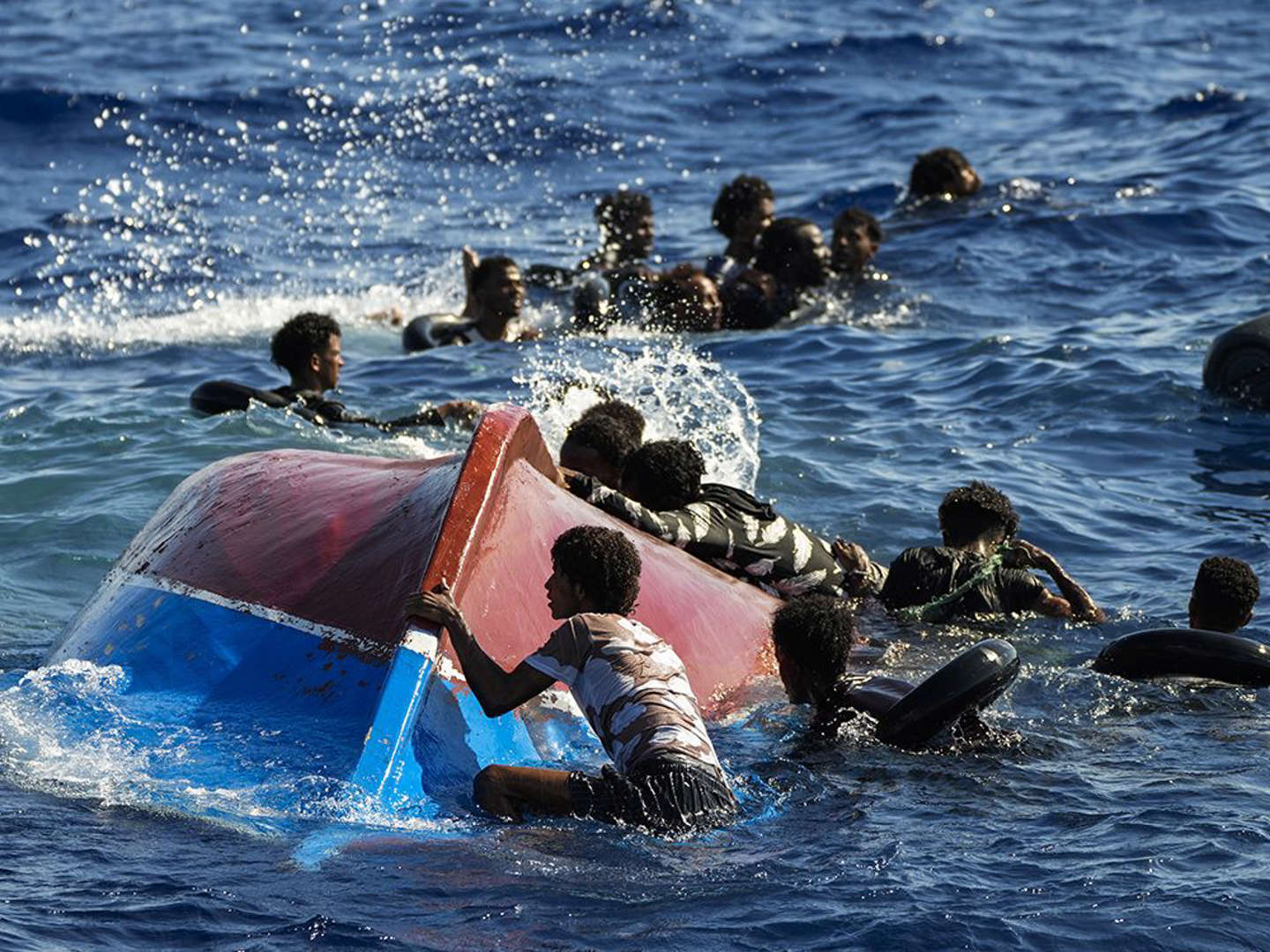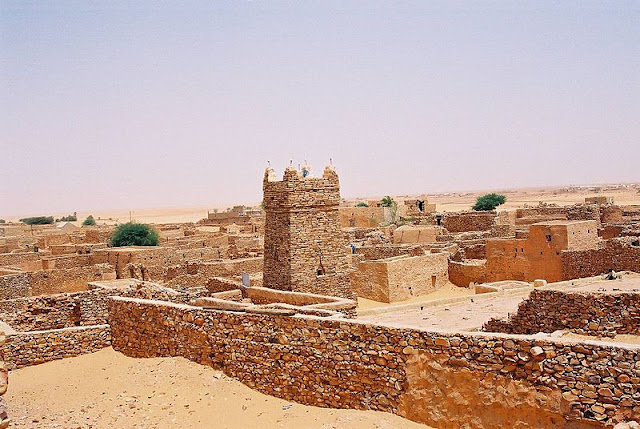Why don't we send them back?
Thousands have died in the Mediterranean. Why don't we care?
Lampedusa is about as close to Africa as you can get and still be in Europe.
That is why the little island between Sicily and Tunisia is a major destination in the migrant crisis of the central Mediterranean, a human catastrophe that is accelerating into its second decade with no end in sight.
his weekend marked a little milestone, a record of sorts, when 65 boats landed at Lampedusa on Friday, then another 55 on Saturday, with 2,172 people arriving within 24 hours, more than ever before, sending the Italian island’s emergency reception centre so far over capacity the island’s chief official said it was beyond “humane.”
The Mediterranean migrant crisis is as inhumane as any natural disaster, exposing thousands of people to the risk of drowning as they try to reach safety. Already this year 2,300 people have been lost at sea this way, according to the United Nations High Commissioner for Refugees , and more than 25,000 have died since 2015, when tracking began in earnest. It is a smuggling trade, so the true numbers are almost certainly higher.
But over this first decade, the human catastrophe has failed to shock like others of similar scope, or different cause. The drownings simply accumulate. Like mass shootings in America, each new horror is muted by its familiarity.
Earlier this month, a seven-metre long boat carrying 45 people, including three children, left from Sfax in Tunisia but sank soon after. Four people survived in the sea before clambering aboard another empty boat, likely from a previous crossing attempt. In response to this shipwreck, and advocating generally but vaguely for political and diplomatic solutions, Pope Francis said the crisis is “an open wound on our humanity.”
In the last few days, the NGO SOS Mediterranée has reported rescuing more than 400 people from flimsy vessels in the central Mediterranean, including more than 30 unaccompanied children and nine babies. They were the lucky ones.
In June, a vastly overloaded trawler named the Adriana, sailing from Tobruk in Libya, was wrecked off the southern Greek town of Pylos, killing more than 80 of the perhaps 700 migrants on board. No one even had life jackets.
It is not always like this, just another distant disaster, barely registering anymore with the Canadian public.
Once, it exploded into global consciousness, with the picture of the boy on the beach. This was two year old Alan Kurdi, photographed face down, dead in the waves on the Turkish shore in September 2015. He was a Syrian refugee whose family was trying to reach Vancouver, where his aunt was ready to sponsor them. Canadians in particular were so moved that it became a major issue in the 2015 election that saw the Conservatives replaced by the Liberals.
But, like the conflicts and civil wars that feed the Mediterranean migrant crisis — from the Sahel through the Horn of Africa to Yemen and beyond into Central Asia, even as far away as Bangladesh — these horrors soon slip back beneath the surface.
The numbers of dead rise like a tide, too slow to notice unless you measure over a long time. Drip by drip, the numbers reach into the thousands.
It has become a perennial issue of European politics, no longer the acute crisis that rallied the world’s attention in 2015. It has become a campaigning focus for a surging far-right racist nativism that blames migrants for perceived European decline, from street crime to culture. And it remains a seemingly impossible dilemma for mainstream governments.
French President Emmanuel Macron is trying to pass immigration reforms, but in highly adverse conditions, alienating both the left and the right with a plan to fast-track asylum cases and legalize undocumented workers, while also tightening the path to long-term residency and enabling greater deportation.
In Britain, far from the Med, migrants who have crossed into France from Italy make another dangerous sea crossing of the Channel, seeking more favourable treatment than on the European mainland. Overwhelmed as much as France or Italy, the Conservative government under Prime Minister Rishi Sunak has been trying to enact a policy of sending asylum seekers to Rwanda for processing and settlement, only to be told by the Court of Appeal this summer that the plan is unlawful because Rwanda is not safe, a decision Sunak has pledged to appeal. It has also recently set up a barge in a Dorset harbour to house migrants awaiting a hearing.
Just like in the Mediterranean, though, the boats keep coming, every one of them too small and ill-equipped to make the journey safely, overfull with people desperate for safety.
The plain need to do something has rattled the European project as much as Brexit or the sovereign debt crisis, stressing charity and cooperation beyond their practical limits, and placing a disproportionate impact on Greece and Italy. Italy alone has recorded well over 100,000 migrant arrivals by sea this year.
Under a new right-wing populist government run by a party that once pledged to blockade North Africa, Italy has moved to prevent civilian rescuers, even levelling fines against Doctors Without Borders for failing to comply with onerous rules about how rescues at sea must be carried out and reported, and detaining the SOS Mediterranée boat Ocean Viking at the port of Civitavecchia for more than a week.
UN High Commission for Human Rights Volker Türk called this policy of criminalizing and discouraging civilian rescue efforts “simply wrong.” But he has also urged solidarity with Italy for its primary role in the crisis, as it faces a “steep increase in the number of desperate people putting their lives at grave risk.”
“We cannot afford to dither, and to become embroiled in yet another debate about who is responsible. Human lives are at stake,” Türk said in April. “Now is the time for solidarity with Italy and enhanced cooperation to safeguard the protection of the human rights of all people on the move.”
As this weekend’s minor record in Lampedusa shows, this remains a distant goal. Mark Green, a former American Ambassador to Tanzania and president of the Woodrow Wilson International Centre for Scholars, recently wrote about the low profile of this crisis.
“So why aren’t we paying more attention? Why are these terrible tragedies unlikely to be talked about a month from now, let alone a century from now? Some might say it’s a sign of the difficulty we have in fully processing the rapid release of news during the age of social media. Others say that stories of the war in Ukraine and increasing hostilities with China are taking up all the time and space our media are willing to devote to international affairs. Still others would argue that news consumers simply aren’t stirred by tragedies involving people who ‘don’t look like us.’ The only certainty is that there will be more migrants crossing the Mediterranean Sea in coming months — and more dying in the effort.”
The unofficial tally of about 30,000 migrants dead or missing dates to 2014, but the crisis is older still. In 2013, the late Sunday Times writer and critic A.A. Gill went to Lamepdusa and wrote about a small wooden boat, “like a child’s drawing, with a high wheelhouse,” that set out from Tripoli with 520 refugees.
“This is the last journey, whatever the outcome,” he wrote . They had come from Eritrea mostly, the young men fleeing conscription into a conflict that continues today, a decade later. They pushed through Libya where they were persecuted, locked up for bribes, eventually in effect chased out into the Mediterranean.
Usually, migrant boats are tracked and escorted to port by Italian authorities. This one got missed, ran out of fuel, foundered near cliffs as the passengers burned fabric to alert people on shore. Then it sank, and 368 people died.
Gill spoke to the mayor, who said: “This is not a new crisis. It is not a crisis at all. We have been taking in refugees every week for 15 years. They are not the problem. They are not the fault.”
Link.
Thousands have died in the Mediterranean. Why don't we care? (msn.com)


Comments
Post a Comment